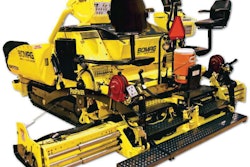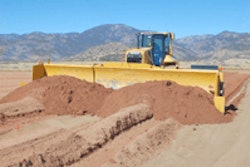Changing Tactics Part II:
Three Moves We Must Make
By Kirk Landers
 [email protected]
[email protected]
Surface transportation’s special interests – including the construction industry, highway users, and mass transit users – have traditionally focused their human and financial resources on lobbying Congress for improvements to the federal transportation program.
That worked reasonably well until it came time to pass the 2004 program. With anti-tax paranoia sweeping through American political ranks, a Republican administration and a Republican congress refused to increase the fuel tax by even a penny. That process gave birth to the wretchedly inadequate SAFETEA-LU program.
Fast forward to 2009-10 and you have the same scenario, except now we have a Democratic administration and a Democratic congress. And instead of needing a nickel-per-gallon boost to the fuel tax, we need something closer to 25 cents. And there is no prospect of achieving it.
Obviously, lobbying Congress is not a way to get a transportation program that can sustain America’s economic growth. It’s time to develop new tactics.
Here are three ideas for new approaches to the problem:
Take the message to the people. The construction industry and highway user groups should combine resources to fund a high profile advertising and public relations campaign aimed at the American taxpayer and voter. The purpose of the campaign would be to correct public misunderstandings about the federal program (for example, the fuel tax does not increase every year as most Americans believe; it hasn’t increased since 1993), and to warn Americans that if our roads continue to decline, our economy and quality of life will deteriorate too. The message: support a fuel tax increase and a federal transportation plan that gets us on the right track, and make sure your candidates for office support those goals, too.
Lobby the people holding the power. The refusal of Republicans and Democrats to increase the fuel tax is rooted in fear. Pols on the left and the right fear the wrath of anti-tax right-wing opinion leaders on radio, television and internet blogs. Most Republican politicians have no hope of being elected or reelected if they get crosswise with them, and many Democrats fear giving these critics an easy issue for the next campaign.
It’s time to educate these thought leaders and their staffs on the facts about the road and bridge infrastructure in America – how it’s funded, how funds have not kept pace with demand, and how a grass roots campaign – led by them — to save our infrastructure could result in a waste-free bill that gets the job done.
Rally the highway users. Want to change how the public, the news media, and the body politic view the transportation crisis in America? Get a half million truckers, auto club members, rail transit users, and Chamber of Commerce constituents to convene in the capitol to hear speeches by their leaders, and to invade the halls of Congress to spread the word. The media coverage alone could dramatically change the transportation debate in America by showing that consumer and business groups support a solution that includes a fuel tax increase.
Road industry analysts with insight into the political process have become increasingly dubious about achieving an adequate transportation bill in the political and economic climate that plagues Washington, DC today. The old formulas aren’t working. Clearly, it’s time for new tactics.v










